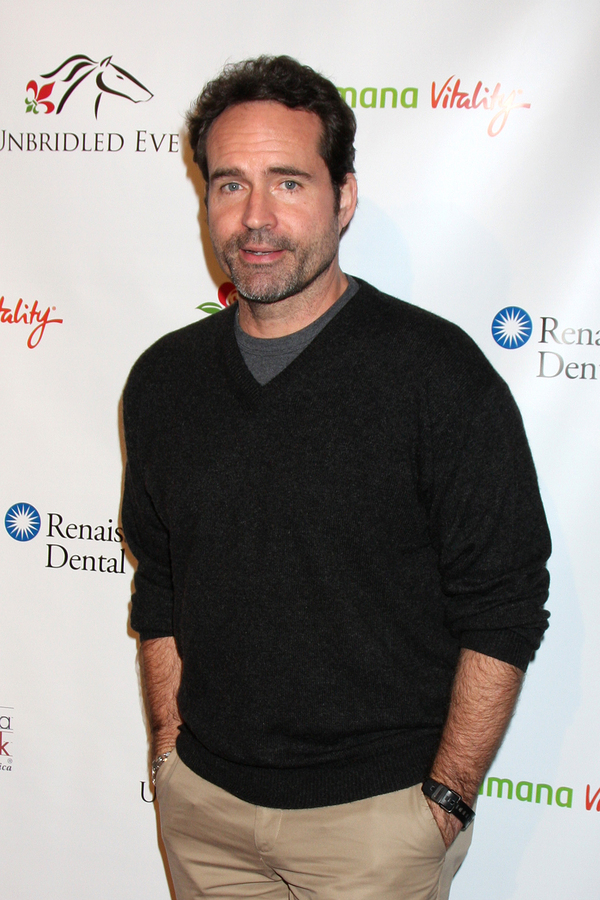 A recent article written by Ann O’Neill for CNN.com brought to light an example of the conflict surrounding the issue of “paternity” and what it means to be an unwed father seeking participation in his child’s life.
A recent article written by Ann O’Neill for CNN.com brought to light an example of the conflict surrounding the issue of “paternity” and what it means to be an unwed father seeking participation in his child’s life.
The article focuses on the ongoing legal battle between actor Jason Patric and former girlfriend Danielle Schreiber over paternity rights for their four-year-old son, Gus. According to Schreiber, Patric was nothing but a sperm donor for their son, who was born via in vitro fertilization. She insists that for the first two years of the boy’s life, Patric was only a visitor and hadn’t even set up a crib in his home for Gus.
However, Patric is seeking full paternity rights and the court struggle is showing just how difficult it is to determine an unwed father’s place in his child’s life. Schreiber is married (Patric is not) and has done everything from filing restraining orders to seeking court rulings to keep her former boyfriend from even mentioning Gus’s name via social media or to the media. She insists that Patric has not performed the role of “father” until recently, and even requested that his name be kept off of Gus’s birth certificate (which it was).
So what paternity rights does a biological father have? In a time when marriage is still seen by the courts as the best environment in which to raise children, and when many states have legalized gay marriage, the legal implications of this question have become more prevalent.
At the time Patric interviewed with CNN, he had not seen Gus in 66 weeks. However, he points out that he drove Gus’s mother to the Los Angeles clinic where Gus was conceived, and she listed both herself and Patric as the “intended parents” of the boy. He states that they celebrated Gus’s first birthday together and that Gus called him “dada”.
Patric states, “Two years ago, my birthday was on Father’s Day. I went out with Gus and Danielle. She got me a big Father’s Day cake with Gus’ picture on it for my birthday. I have pictures of that and the cake. Within 10 days of that, she said, ‘I have a lawyer, call a lawyer,’ and would not speak to me again.”
The couple attempted to work out the paternity dispute through mediation, but was unsuccessful. This year marks the second year that Patric has spent away from Gus on father’s day. “Of course it’s incredibly sad,” he said. “It’s the most important thing you can be to someone, a parent, and that’s what I’ve done. It’s about the boy, and you have to make everything about him.”
Although Patric is still fighting the courts for his paternity rights, he takes comfort in knowing that regardless of the outcome, Gus “will have a record of how hard I fought for him.”





 When a beloved family member passes away, the family he or she leaves behind is often in significant turmoil and grief. Add to this the problems that can often arise after granting probate to the executor, and suddenly, family disagreements over probate can turn a family that was once close knit into a family that can barely stand to be in the room with each other.
When a beloved family member passes away, the family he or she leaves behind is often in significant turmoil and grief. Add to this the problems that can often arise after granting probate to the executor, and suddenly, family disagreements over probate can turn a family that was once close knit into a family that can barely stand to be in the room with each other.

 Gamblers understand that there is risk involved in the activity, but there are some instances where the responsibility for loss lies in the hands of the casinos, themselves. In these cases, gaming mediation is a cost-effective, highly successful method of alternative dispute resolution to recoup money owed or hold a casino legally responsible for unfair treatment.
Gamblers understand that there is risk involved in the activity, but there are some instances where the responsibility for loss lies in the hands of the casinos, themselves. In these cases, gaming mediation is a cost-effective, highly successful method of alternative dispute resolution to recoup money owed or hold a casino legally responsible for unfair treatment. Food and drug product liability is a common dispute and cause of mediation, making food and drug mediation a growing area of alternative dispute resolution. The reason for the increase in attention is an increase in the number of people who are affected, particularly by prescription drugs. In fact, seven out of ten Americans take a prescription drug and 20 percent take at least five different prescribed medications, according to a recent study released in the journal Mayo Clinic Proceedings.
Food and drug product liability is a common dispute and cause of mediation, making food and drug mediation a growing area of alternative dispute resolution. The reason for the increase in attention is an increase in the number of people who are affected, particularly by prescription drugs. In fact, seven out of ten Americans take a prescription drug and 20 percent take at least five different prescribed medications, according to a recent study released in the journal Mayo Clinic Proceedings.